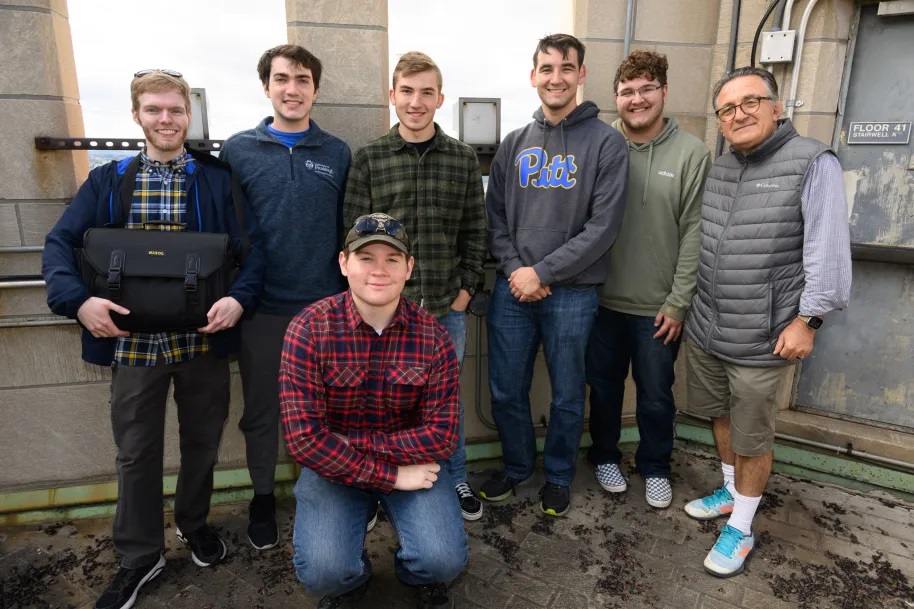Meetings
Meetings are in our shack, 1213 Benedum Hall. Meeting times can be found posted on the door and in the club Discord.
Invite Link: https://discord.gg/tTtFeZR
Contests
An extremely popular competitive activity in Amateur Radio is something called contesting (or radiosport). There are many different contests held throughout the year (with the most popular ones being 24 or 48 hours long during weekends). The basic objective of these competitions is to make a contact (involving a short exchange of information) with as many stations on the air participating in the contest during the contest period as possible. There are a couple of different categories of contests. First, some contests are primarily oriented towards North American contacts only (like the ARRL Sweepstakes contests), while others are primarily oriented towards International contacts only (like the CQ Worldwide DX contests). Second, the mode of communication differs between contests. For example, the ARRL Sweepstakes CW contest is a CW (Morse Code) only contest! The weekend after is the ARRL Sweepstakes SSB contest which is a SSB (Voice) only contest. CW and SSB comprise the most popular of the contest, however, RTTY (digital radioteletype) and PSK (digital text phase shift keying) contests are becoming more and more popular.
The Panther Amateur Radio Club (W3YI) won the School Club category for the Atlantic division in the 2012 ARRL CW Sweepstakes Contest in November, 2012. We placed 5th in the nation for school club entrants.
DXing
Talking to someone on the other side of the world is something you can do every day from our station! Making contacts with other Amateur Radio operators in other countries around the world (DXing) is one of the most enjoyable aspects of Amateur Radio. Who you can hear all depends on band signal propagation conditions, but our high gain directional Yagi antenna on the roof of Benedum Hall allows us to have a phenomenal signal which allows for easy contacts. It's almost always possible to talk to someone in Europe, North America, or South America around the clock. Occasionally, higher frequency band openings (like working the grey line on 21MHz at sunset) allows for easy contacts between our station and stations in Japan and Oceanic stations in the Pacific. Occasionally, band openings allow for rare contacts with stations at remote locations in Africa, the Middle East, southern Asia, and Australia.
To summarize the ability for our signal to span the globe, during the 2013 ARRL DX CW contest, we made contact with 96 different entities (something like 85 different countries around the world) all in about 13 hours of operating time.
Education
Amateur Radio is an area that pulls in a diverse amount of knowledge and skill-sets into the communication with other Amateurs. One of the primary goals at PARC is to help educate our peers in the proper use, operation and theories involved Amateur Radio. This includes exam sessions that we host in the Fall and Spring Semesters as well as a series of review sessions that lead up to these events. But, it also permeates even deeper within the club in that PARC officers and members share in the plethora of technology and ideas that comprise Amateur Radio.
